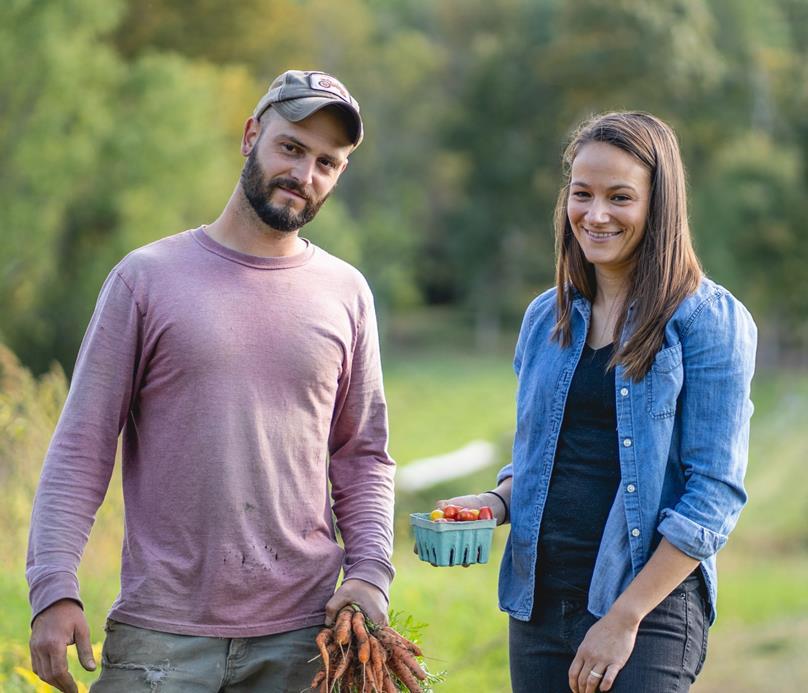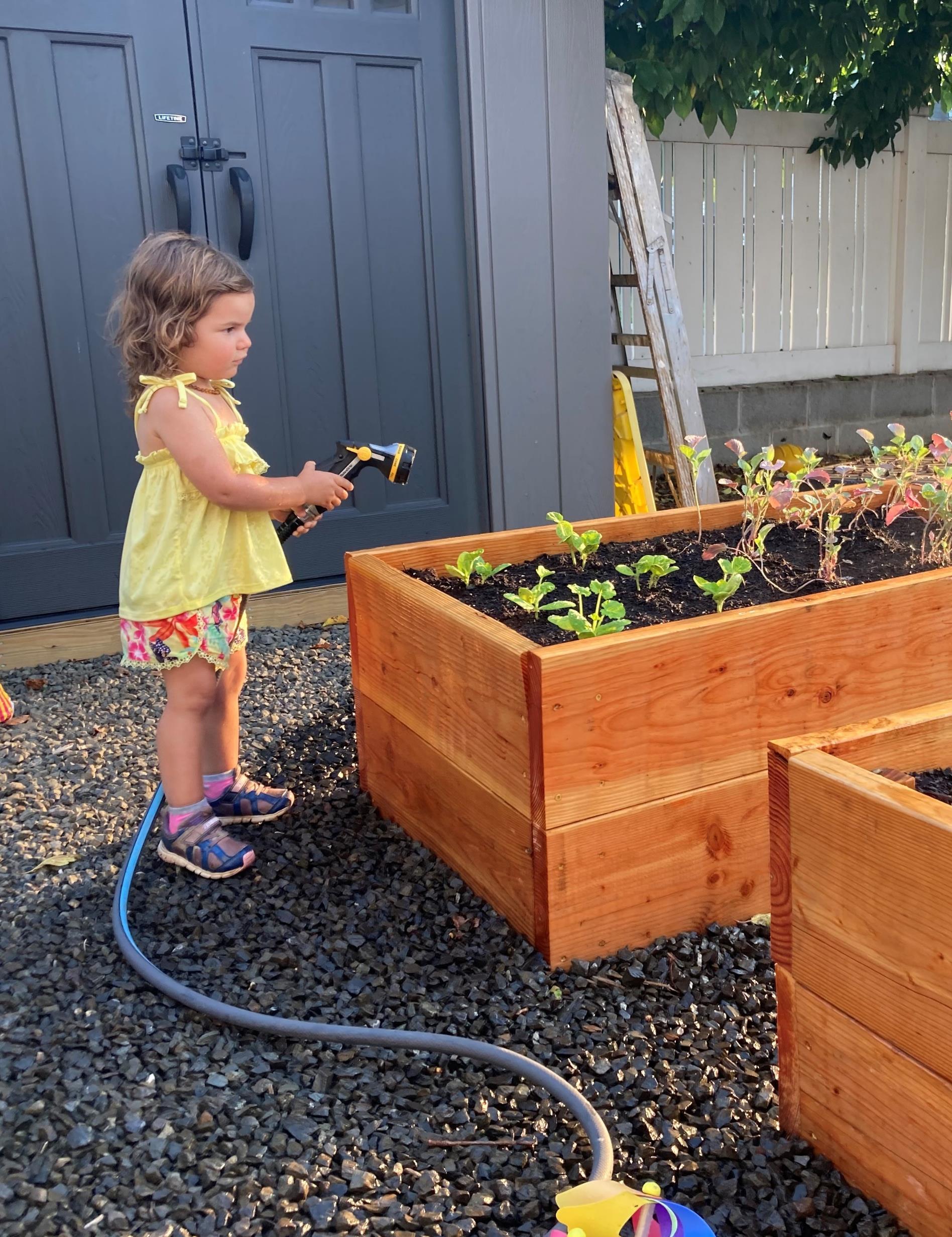
4 minute read
THE FAMILY GARDEN


Advertisement





By Victoria Rogowski
Most mothers long for their children to embrace fruits and vegetables. Experts say the best way to make that happen is repeated exposure – and in my humble opinion, those exposures start in the garden. Though we’re nearing the end of summer and it may feel like it’s too late to start a garden, the reality is that there’s still time for certain cooler-weather crops. Whether you plan to start this season or next, these tips will help you to turn your kids into gardeners.
Start by asking your children what vegetables they’d like to grow. Include familiar crops like tomatoes, peppers, and cucumbers and choose a few different items like kohlrabi and husk cherries. Taking ownership over the plants they grow can spark curiosity within children and make it more likely that they’ll taste them. You can request mailed copies of seed catalogs or browse libraries online. Seed Savers Exchange is one company that sells heirloom seeds, which are beautiful varieties of vegetables that have been passed down for generations and never cross-pollinated in any way. It is harder to grow items from seed unless you have a mini greenhouse, but your local garden center will have seedlings in the spring.
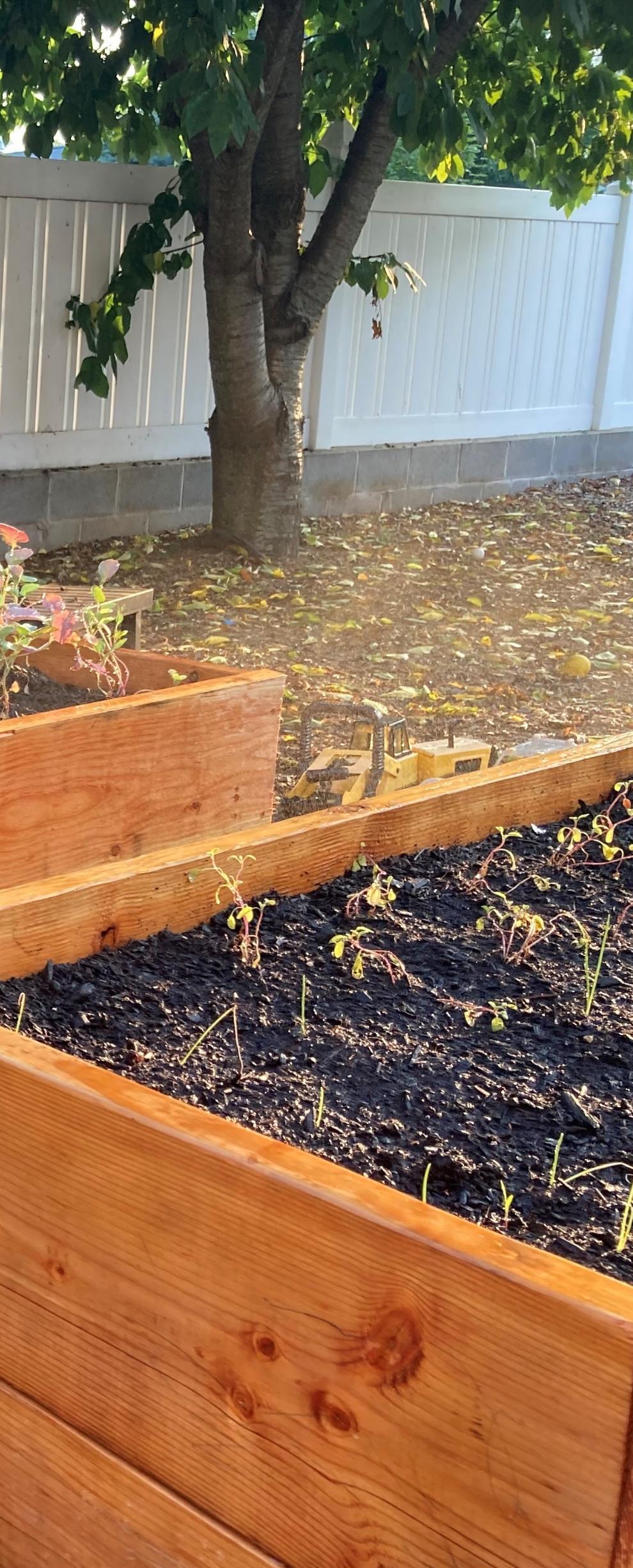
Gardening requires space, and even a 10’ x 10’ plot of land will go a long way. If you are short on space, plants like green beans, tomatoes, and peppers, which grow narrowly and vertically, are good options. Low to the ground crops like lettuce can be planted close together. Squash, zucchini, cucumbers, melons, pumpkins, and eggplant will take up more room, but you can get creative with trellises to grow cucumbers vertically. If you do decide to grow a garden in the ground, build raised beds, which help with drainage. You’ll also need to make sure the plot of land gets sunlight for most of the day, is close to a hose, and can be fenced in. Fencing is imperative to keep critters away.
If you’re short on space, or just looking to dabble in gardening, consider a container garden. Containers can be spread out all over your yard. Tomatoes, lettuce, and herbs all grow well in deep, wide containers. You can even keep them close to your house or on your deck, where critters are less likely to approach them.
Whatever your setup, visit your local garden center for supplies. They can assist you with finding the right fencing, compost, soil mix, and fertilizer to fit your needs. My husband, Farmer Randy, always encourages gardeners to fertilize and water often.
Some ways that you can involve your children in gardening are, of course, to let them dig and plant in the garden. Older children can help with finding the measurements of fencing and spacing between plants. All children can be responsible for checking how moist the soil is. You can stick your finger in the dirt up to the first knuckle. If the soil is wet, it doesn’t need watering, otherwise give it a good drink. Especially on hot and windy days which will dry out the garden faster.
You’ll also want to make sure that your garden is weed-free. Apps like PictureThis allow you to upload a photo and identify potential weeds that need removing from the garden. An overgrown garden will steal water and nutrients away from vegetables. Kids can be responsible for weed identification. Purchase some kid-sized gloves and teach them to look for plants like poison ivy that they’ll want to avoid.
If you do end up with pests or diseases in your garden, your local garden center will help you find an application that feels like a safe choice for you and your family. Picture Insect is an app that can help you identify the pest, and you can even try taking the photo to your local garden center if you aren’t sure.
Check on your plants daily to see when they’re ready to harvest. Squash can ripen in a day and tomatoes can turn red quickly, so you’ll want to continue to look. In my experience, kids love to take their baskets out to the garden and fill them up. Teach them what to look for and how to be gentle with the plants. Peas, tomatoes, cucumbers, and beans are safe options for little fingers, but you’ll need shears and knives for crops like eggplant, lettuce, and broccoli.
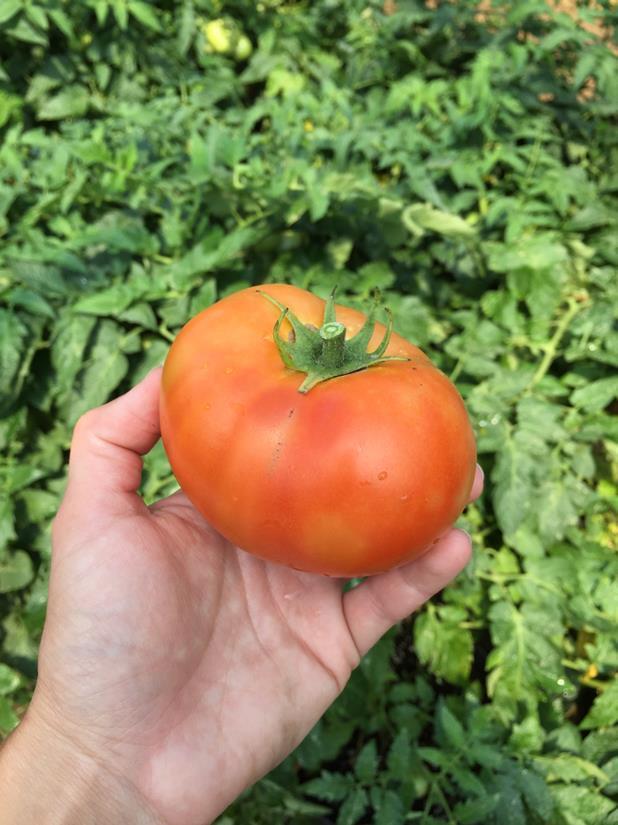
While you wait for your harvests, flip through some seasonal recipe cookbooks with your kids to dream up some meal options for when those vegetables are ready, and of course, get them involved with cooking in the kitchen. You can find kid-friendly knives online and allow mature children to cut up vegetables alongside you. If your harvests are coming in quickly, make sure you have adequate storage containers for freezing or canning your extras and teach your children how to avoid food waste. You can even teach your children about composting and collect kitchen scraps to coincide with learning about gardening. https://www.laurelglenfarm.com/ Instagram: laurelglenfarmllc
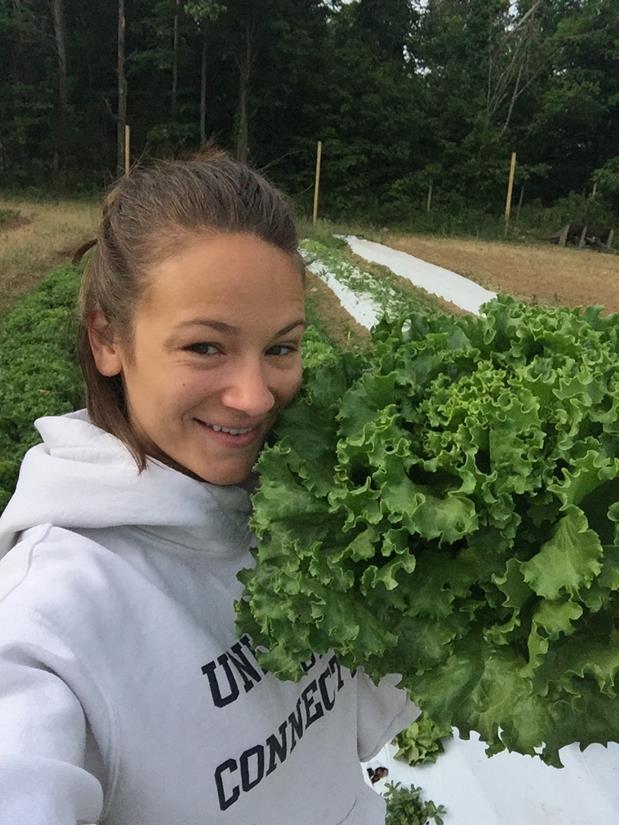
If you’re getting into gardening late in the season, there are plenty of crops that fare well in the fall. Farmers plant multiple rounds of squash, zucchini, and cucumbers to keep the harvests coming, and you can harvest any of these vegetables right up until the first frost. Other crops like lettuce, spinach, radishes, beets, and broccoli are wonderful cold-tolerant vegetables that you can grow through the autumn. The children in your household can keep their eyes on the weather forecasts and if the meteorologists are predicting a frost, you can cover up your crops overnight with a sheet or bring your pots into a garage. When it’s time to wrap up the garden for the season, children can help pull out plants and garden stakes and put supplies away for the winter.
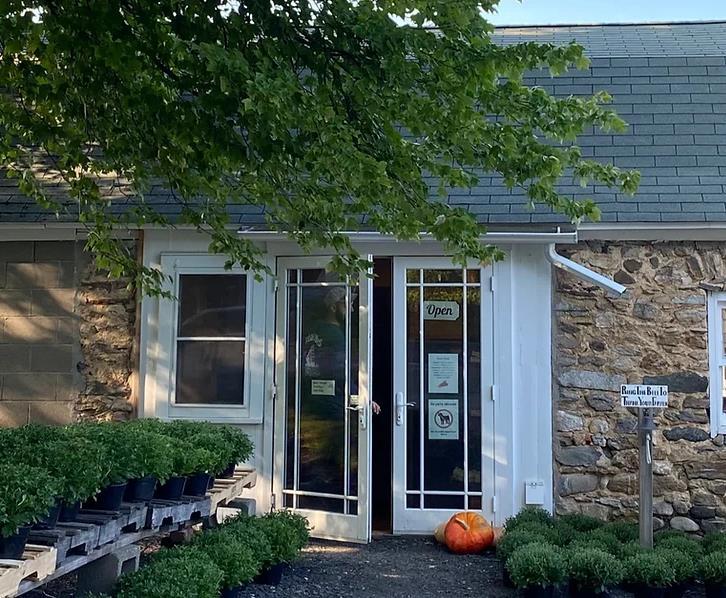
There’s nothing so rewarding as watching your children learn to love nature and to enjoy the fruits of their labor. They’ll also learn about hard work, and sometimes about crop failures outside of their control. They’ll learn which vegetables they love to eat and which they love to grow. Most importantly, they’ll collect precious memories and stories to share with their own kids someday about “the garden that they had growing up…” and maybe even pass down some of the seeds to future generations.
Enjoy the experience!
Laurel Glenn Farm, led by Victoria and Randy Rogowski, is a family-run farm in Shelton, CT. If you’re local, check out their award-winning farm store for fresh produce, or join their CSA! You can also visit their website and read about life keeping up with farming and 2 young kids on their blog!
